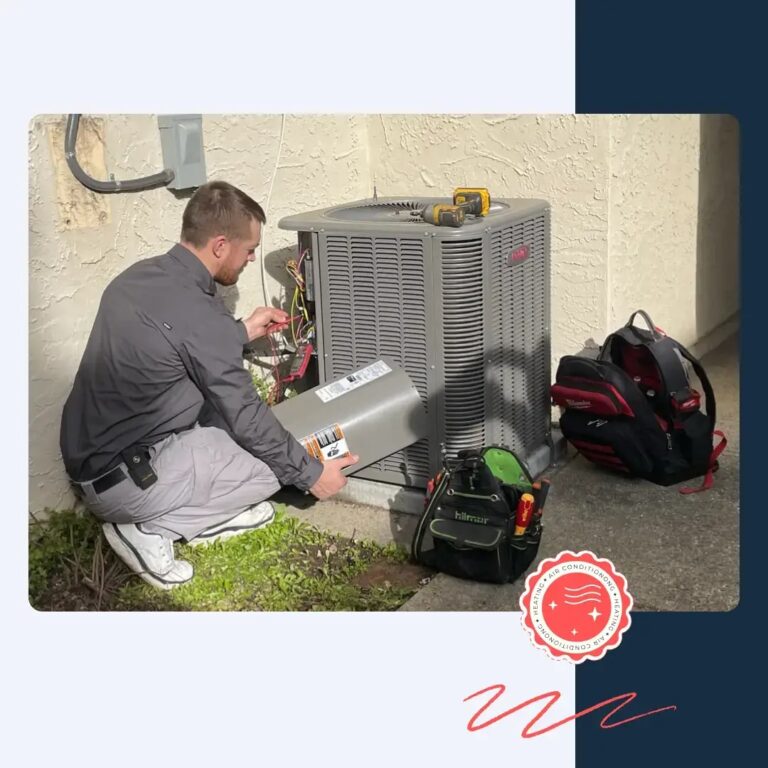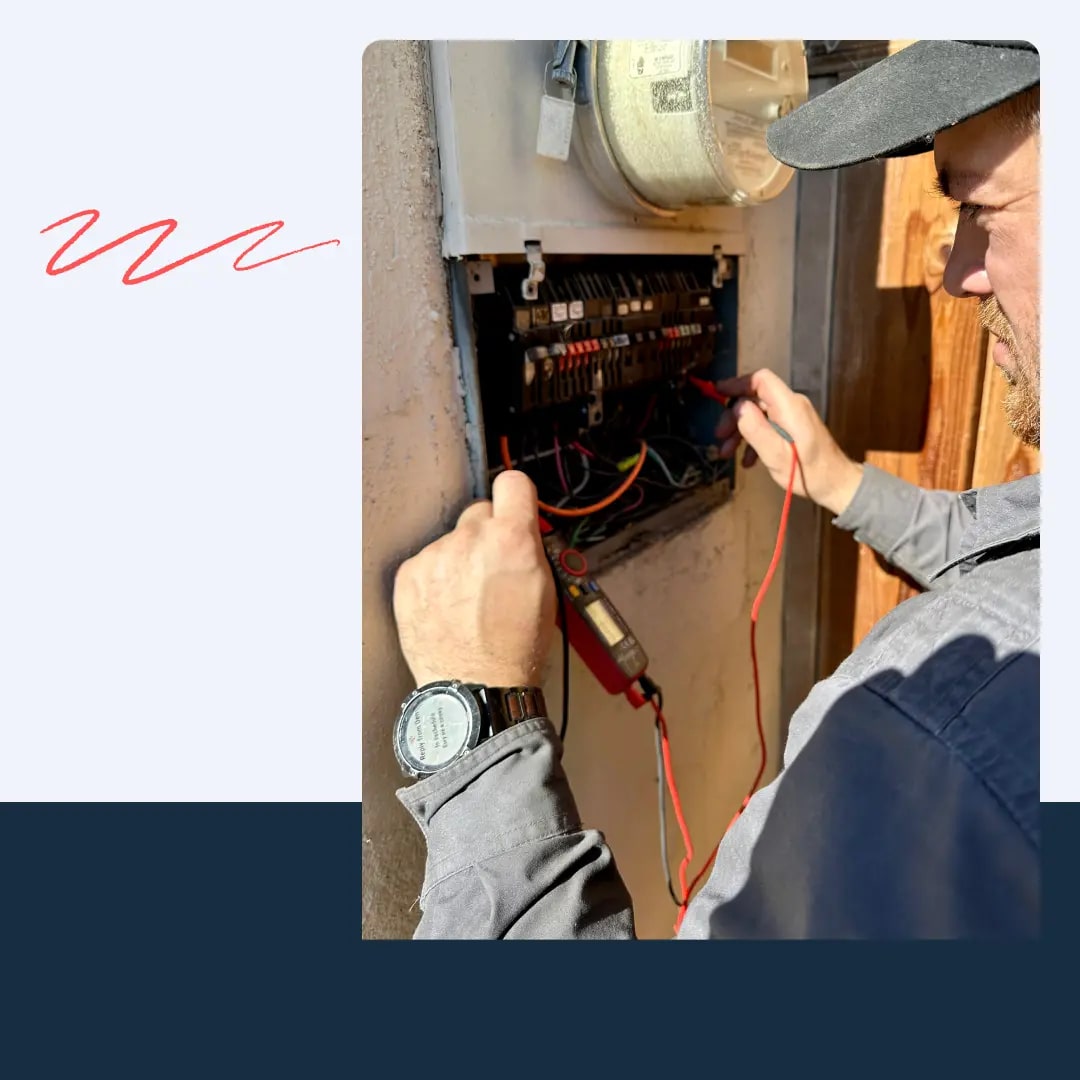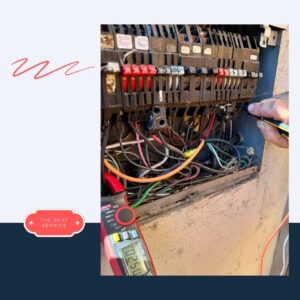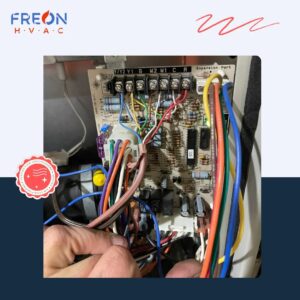AC Summer Tune Up: A Spa for Your Air Conditioner

In California, a significant number of climate guardians operate with reduced efficiency. The reasons? Several, ranging from improper installation and refrigerant leaks to mismatched capacity or outdated designs.
Energy losses can reach a phenomenal 20–30% or more, especially in old or overrated systems.
Is there a way to reduce these losses? Yes. Annual diagnostics and maintenance from Freon Service can help.
And if you ignore the needs of your heat tamer?
A two-word answer won’t cut it here. Read our article to find out more.
HVAC Summer Tune Up and a Bit of Forgetfulness
If you skip maintenance for a couple of years, your device will face these challenges:
- Dust and lint will obstruct normal airflow.
- Contamination of the evaporator and condenser will disrupt heat exchange.
- The compressor will work longer and harder, accelerating wear.
- Refrigerant can silently “escape,” and a system meant to improve indoor air quality will start just “pushing air.”
- The likelihood of fan failure increases by about 30%.
Have you come to your senses yet? Great! We’re gathering our tools: multimeter, voltmeter, ammeter, tester, and more, and rushing to:
- Clean or replace filters. This simple procedure as part of an AC summer tune up ensures clean air and up to 15% savings on electricity.
- Inspect the outdoor unit. We’ll also sweep off dust, leaves, and grass.
- Check the fan and the condition of the fins.
- Clean the coils.
- Pay attention to the drainage. There should be no clogs, mold, or bad odors.
- Top off the refrigerant level, without which you can’t achieve proper cooling or expect long compressor life.
- Measure resistance and check continuity. Could there be a loose contact somewhere?
- Calibrate the thermostat. Especially if it’s “smart.” We need to ensure it shows the real temperature and activates the system correctly.
Let us share a little secret with you: According to the EPA, poorly tuned systems increase CO2 emissions by 20–30% per season. This means a tune-up can reduce your carbon footprint by 200–300 kg of CO2 over the summer. Isn’t that cool?
AC Summer Tune Up After 5 Years of Active Service
Not often, but it happens that owners forget about their oasis-makers for 4 or even 5 years. What do Freon Service specialists see when they look inside?
- Compressor, fan, control board—all working at their limit.
- Copper pipes, metal parts, and contacts are rusting and deteriorating.
- A hum is heard, and sometimes the screeching of bearings.
- An unpleasant odor inside.
- Mold inside the unit.
- A machine originally rated at SEER 16 operates like SEER 10.
Owners notice that electricity bills have increased. This is an expected unpleasant surprise, as without an AC tune up for summer, the system has to work twice as hard for the same result.
The second expense looming is a full repair or even replacement of the air conditioner.
A service reboot is essential here. This means:
- Deep cleaning of everything that can be cleaned.
- Replacing parts that wear out quickly
- Thorough inspection of insulation, including pressure testing.
You might be surprised, but the benefits of these actions go far beyond just better temperature control. For example, you might stop sneezing so often. What’s the connection? Read below.
HVAC Summer Tune Up Against Respiratory Problems
An excessively dirty cooler can become an allergen bomb. We don’t want to scare you, but we must draw your attention to the following factors:
- Over time, mold can grow in the damp and dark parts of the system (evaporator, condensate tray, air ducts). When the air conditioner is turned on, spores spread throughout the house.
- Without a regular AC tune up for summer, the indoor unit, filters, and fans accumulate:
- Pollen and spores
- Pet dander
- Skin cells (perfect food for dust mites)
- Household dust
This makes breathing difficult even for healthy people, not to mention asthmatics, the elderly, or children.
Add to this a clogged filter and dirty coils, which impair air circulation. The house feels like it has “heavy air,” and humidity rises. This further “fuels” the growth of bacteria and the buildup of allergens.
Is there no way out?
Of course there is. HVAC summer tune up:
- Checking the airtightness of ducts and cleaning them. Allergens or dust shouldn’t re-enter the rooms.
- Replacing filters. Especially with a high MERV-rating model.
- Managing humidity with the air conditioner or a separate dehumidifier. A 40–60% level is the gold standard for healthy breathing.
- Setting up zone control to maintain an optimal microclimate in different parts of the house. For example, the bedroom can be kept cooler and drier than the kitchen.
As you can see, this isn’t about cosmetic fixes but measures for real health improvement.
AC Tune Up for Summer and the Zoo Corner
Believe it or not, all the above are typical situations. The beauty of fieldwork is that things don’t always go by the book, and sometimes things happen that can surprise or even startle experienced Freon Service technicians. Intrigued? We won’t keep you waiting. Here are the 3 strangest and/or most unpleasant finds in cooling units:
- Wasp Nest
Yes, you read that right. Sometimes, when opening the cover of the outdoor condenser, we see active movement inside and hear an angry, threatening buzz.
What can you do? It’s a warm, sheltered spot. Wasps and hornets find it and think: what luck, this is a great hideout and it’s unoccupied. The happy family moves in, and then we come for an AC summer tune up and disrupt the idyll.
- Rodents
What’s an air duct to a mouse? A warm, cozy burrow that doesn’t even need digging. Of course, it’s not all rosy: sometimes it’s noisy, there are few side branches, and if you gnaw through them, you encounter some metal vines. But while the teeth ache, you can calmly work on “redecorating.”
If you suddenly hear rustling or squeaking at night—that’s the first sign that your air conditioner has caught the eye of a curious and active rodent.
- Birds
If insects crawl into outdoor units, you can expect their predators too. Pigeons are proof of that. In their eager chase, they can venture deep inside and even get stuck in the fan. Smaller sparrows maneuver more easily and may even build a nest there.
The perks of such a tenant are frankly few: feathers and debris clog the fan, causing overheating or motor failure. That’s a cost of $200 to $800. Birds also spread bacteria, polluting the air.
The solution? Installing protective grilles and a regular AC tune up for summer. From a professional company. That’s important. After all, the very opportunity for birds and animals to get inside arises from improper installation of the unit, for example, on an uneven surface. Or when vibrations of the unit cause loose connections. If you want to minimize such incidents with your “climate controller” and give it a long, comfortable life, call us, and Freon Service technicians will make it happen.







